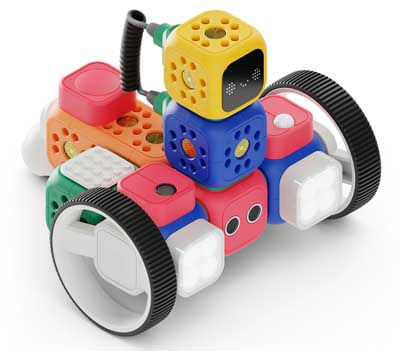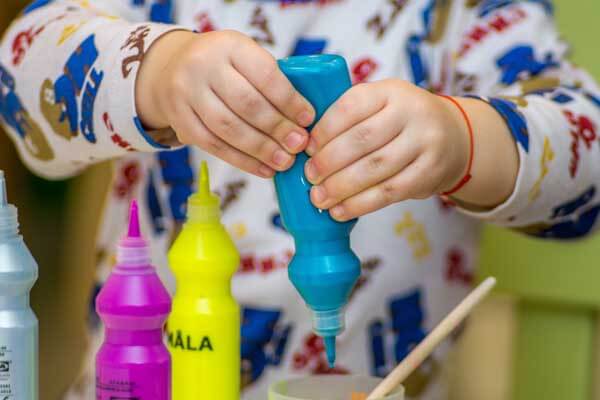Learning Skills Unleashed: A Comprehensive Guide to Nurturing Lifelong Success in Children
Learning skills in children encompass the fundamental abilities that contribute to their intellectual and emotional development. These skills involve the capacity to grasp new concepts, retain information, and apply knowledge in various contexts. From attention and concentration to memory mastery and critical thinking, each facet plays a crucial role in shaping a child's approach to learning. Nurturing these skills not only enhances academic performance but also fosters a love for exploration and understanding.

Learning skills in children pertain to the capabilities and methods they utilize to gain, comprehend, and remember fresh information. These abilities include a spectrum of cognitive and behavioral proficiencies that empower children to effectively interact with educational content. Fundamentally, learning skills encompass the aptitude to comprehend concepts, amass knowledge, and employ understanding across diverse situations.
In practical terms, learning skills manifest through activities like problem-solving, effective communication, and adaptability. Children equipped with strong learning skills demonstrate a natural curiosity, engage actively with educational content, and build a foundation for a lifetime of learning. As parents and educators guide this developmental journey, they lay the groundwork for a child's success in academics, personal growth, and future opportunities. Fostering these skills is not just about education; it's about empowering children to face the challenges of an evolving world with confidence and competence.
- Academic Achievement and Beyond
- Future Opportunities
- Life Skills and Personal Growth
- How to Improve
- Useful Tools
As children embark on their developmental journey, learning skills stand out as the keystone for upcoming success. These fundamental capabilities not only sculpt academic accomplishments but also hold a crucial role in shaping life's possibilities. Let's delve into the significant impact of refining learning skills in children.
Academic Achievement and Beyond
Academic Excellence:
Learning skills lay the groundwork for academic success, fostering an environment where children can comprehend, remember, and apply knowledge effectively. This not only enhances their academic performance but also instills a love for learning.
Problem-Solving Prowess:
Children equipped with strong learning skills exhibit advanced problem-solving abilities. This skill set extends beyond the classroom, preparing them to navigate challenges and make informed decisions in various aspects of life.
Future Opportunities
Versatility in Learning:
A child's adaptability and eagerness to explore new ideas and information directly influence their ability to seize future opportunities. Learning skills empower them to adapt to evolving circumstances and acquire new skills efficiently.
Career Readiness:
As children transition to adulthood, the impact of learning skills becomes even more evident in their career paths. The ability to think critically, communicate effectively, and continuously learn positions them for success in a rapidly changing job market.
Life Skills and Personal Growth
Lifelong Learning:
Cultivating learning skills fosters a mindset of lifelong learning. This not only enhances personal growth but also ensures that individuals remain agile and relevant in an ever-evolving world.
Emotional Intelligence:
Learning skills contribute to the development of emotional intelligence, enabling children to navigate social interactions, understand others, and manage their own emotions—an invaluable asset for success in various life pursuits.
How to Improve
The journey of bolstering learning skills in children is a nuanced process, demanding thoughtful strategies that address the cognitive, behavioral, and emotional facets of development. This comprehensive guide explores a myriad of evidence-based approaches to refine and fortify the canvas of learning skills.
Cognitive Enrichment
A. Implementing Mindfulness Practices:
Introducing mindfulness techniques enhances attention and concentration. Simple exercises, such as deep breathing and focused observation, contribute to heightened cognitive awareness, fostering a conducive environment for learning.
B. Utilizing Mnemonic Devices:
Memory mastery is fortified through the incorporation of mnemonic devices. Techniques like acronyms and visualization not only make learning enjoyable but also significantly boost a child's ability to retain and recall information.
C. Encouraging Divergent Thinking:
Fostering creativity through activities that encourage divergent thinking stimulates critical cognitive connections. This includes engaging in open-ended questions, brainstorming sessions, and imaginative play.
Behavioral Enhancement
A. Promoting Active Learning:
Interactive and hands-on activities promote active learning. From educational games to experiments, actively engaging with content enhances comprehension and reinforces the link between theory and practical application.
B. Establishing a Structured Routine:
A structured routine provides the organizational scaffold necessary for learning. Consistent daily schedules not only instill discipline but also create a sense of predictability, optimizing a child's cognitive readiness.
C. Encouraging Peer Collaboration:
Social interaction plays a pivotal role in behavioral development. Encouraging collaborative learning experiences with peers cultivates effective communication skills, teamwork, and a shared exploration of knowledge.
Emotional Intelligence Cultivation
A. Teaching Emotional Regulation:
Explicitly teaching emotional regulation equips children with tools to navigate challenges. Techniques such as deep breathing exercises and expressing emotions through art contribute to a well-rounded emotional intelligence.
B. Fostering a Positive Learning Environment:
Creating a positive and supportive learning environment is essential for emotional well-being. Celebrating achievements, providing constructive feedback, and acknowledging effort contribute to a child's emotional resilience.
Holistic Approach for Lifelong Learning
A. Modeling Lifelong Learning:
Parents and educators play a pivotal role in modeling a mindset of continuous learning. Demonstrating curiosity, embracing challenges, and showcasing the joy of learning instill a profound appreciation for lifelong education.
B. Integrating Real-World Applications:
Connecting learning to real-world applications enhances a child's future-oriented outlook. Practical examples and real-life scenarios instill a sense of relevance, motivating children to see the broader implications of their education.
Useful Tools
Khan Academy:
Khan Academy offers a wide array of interactive lessons and exercises across various subjects. The platform's adaptive learning system tailors content to individual progress, enhancing children's comprehension and retention.
Duolingo for Kids:
Duolingo offers an interactive language learning experience suitable for children. Through gamified lessons, it enhances not only language skills but also cognitive abilities related to pattern recognition and problem-solving.
PBS Kids Games:
PBS Kids Games provides a variety of educational games aligned with their popular TV shows. These games cover multiple subjects, promoting learning in a fun and engaging manner.
Scratch:
Scratch is a visual programming language that allows children to create interactive stories, games, and animations. It not only enhances coding skills but also fosters creativity and logical thinking.
In the intricate tapestry of childhood development, learning skills emerge as the vibrant threads that weave a foundation for lifelong success. Through the exploration of cognitive foundations, behavioral frameworks, and emotional intelligence, we uncover the richness of a child's potential.
In crafting an environment that values curiosity, resilience, and a lifelong love for learning, parents, educators, and caregivers play pivotal roles. It is not merely about shaping academic prowess but fostering adaptable individuals equipped to face the complexities of an ever-evolving world.
In the end, the investment in learning skills is an investment in the future—unlocking doors to opportunities, instilling a passion for exploration, and preparing children to embark on their unique journeys with confidence. As we embark on this collective endeavor, let us embrace the transformative power of learning, sowing the seeds that will blossom into a future rich with possibilities.
Dive into the wealth of knowledge within "44 Essential Kids' Skills: Fueling Future Success and Opportunities", where we unfold the key abilities essential for your child's overall development.
Written by: Administrator
Published on:
Last updated on:
You May Also Like:
Post a Comment
Join the conversation and share your thoughts on this article. Your comments add depth and perspective to our content, fostering a rich exchange of ideas.













